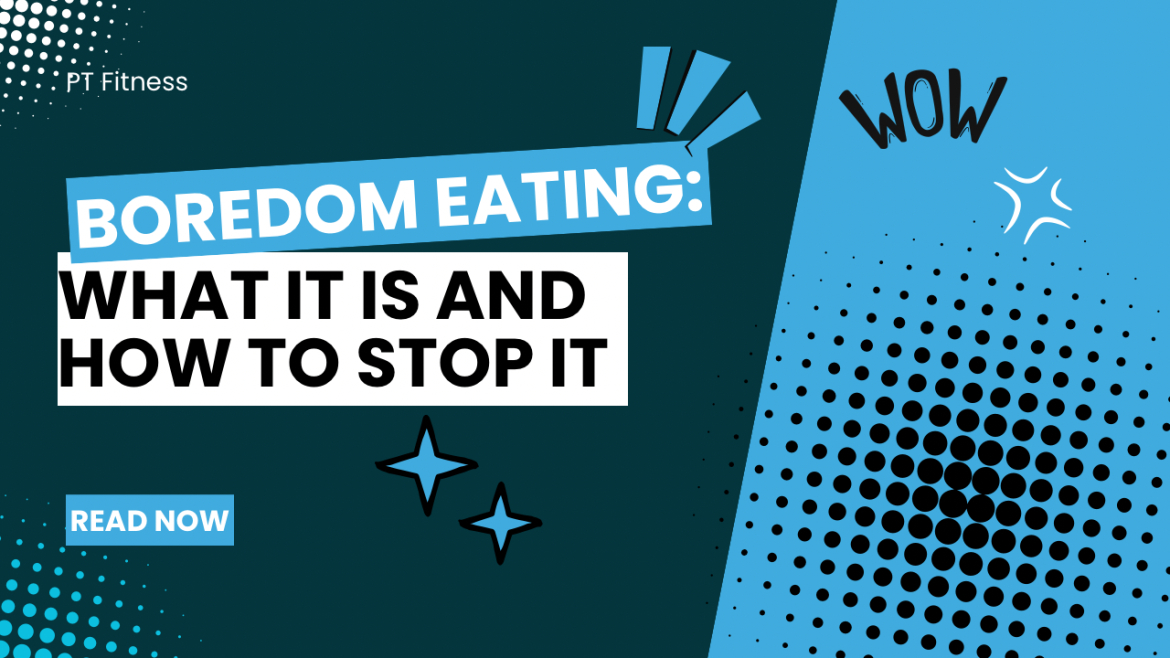If you’ve ever found yourself reaching for snacks even when you’re not hungry—especially while watching TV or procrastinating—it could be boredom eating. It’s one of the most common habits we see in our Wodonga personal training clients, and it can seriously sabotage your fat loss, energy, and health goals.
In this article, we’ll break down what boredom eating is, why it happens, and how clients at PT Fitness Wodonga can take practical steps to stop it.
What is Boredom Eating?
Boredom eating is the habit of eating without physical hunger—usually triggered by emotions like stress, fatigue, or simply having nothing else to do. It’s a behaviour pattern that often flies under the radar but can lead to:
-
Increased calorie intake
-
Difficulty losing weight
-
Disrupted hunger and fullness signals
-
Frustration or guilt after eating
8 Signs You’re Eating Out of Boredom
At PT Fitness Wodonga, we teach our clients to recognise the subtle signs of emotional or boredom eating. Here are some common red flags:
-
You’re not actually hungry.
No hunger pangs, no meal skipped—you just feel like eating. -
You snack while distracted.
Whether it’s scrolling your phone or watching Netflix, you barely notice what you’re eating. -
You turn to food for comfort.
Stress, loneliness, or boredom = snack attack. -
You snack often—even after meals.
You’re constantly reaching for something throughout the day. -
You overeat, especially junk food.
It’s easy to blow past portion sizes, especially with chips, lollies, or baked treats. -
You crave specific foods.
Usually high in sugar, fat, or salt—not a salad. -
You feel guilty after.
You regret eating, especially if it didn’t satisfy you. -
You struggle to stop.
Once you start, it’s hard to walk away—even if you’re full.
Why Boredom Eating Matters for Your Health and Fitness
For clients trying to lose weight in Wodonga, boredom eating is one of the top silent saboteurs. It leads to:
-
Caloric surplus (often without realising it)
-
Low energy due to nutrient-poor foods
-
Plateaued fat loss despite regular training
-
Emotional frustration around eating habits
At PT Fitness Wodonga, our personal training programs are designed to help you stay on track with both movement and mindset—and that includes addressing your nutrition habits.
How to Stop Boredom Eating: Practical Tips from Your Wodonga Coach
Want to break the habit? Here’s what we recommend at PT Fitness:
✅ Use a hunger scale (1–10):
Check in—are you actually hungry, or just triggered?
✅ Have a boredom buster list:
Go for a walk, stretch, drink water, or do a quick task.
✅ Eat mindfully:
No screens, no rushing—just focus on your meal.
✅ Plan balanced meals:
High-protein, high-fibre meals reduce cravings and keep you fuller longer.
✅ Track your patterns:
Use a food diary or app to spot emotional triggers.
Final Word: You’re Not Alone—And We Can Help
Boredom eating is incredibly common, and it’s nothing to feel ashamed about. But it can be changed. If you’re struggling with mindless snacking or emotional eating, we’re here to help.
At PT Fitness Wodonga, our coaching goes beyond the gym floor. We support our clients with personalised training, nutrition advice, and accountability that actually gets results.
? Ready to get back in control of your nutrition?
Book a free consultation with one of our personal trainers in Wodonga today.
Let’s rebuild better habits—together.

